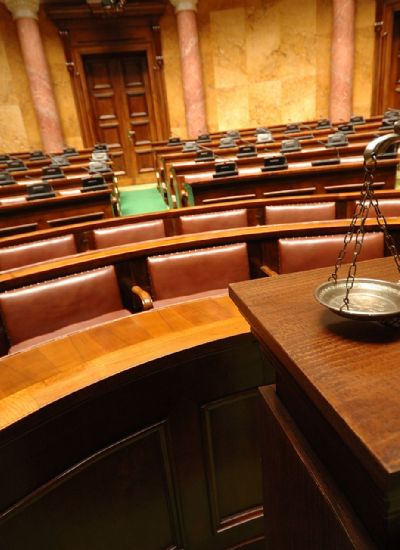California's Statutory Requirements for a Last Will and Testament
- Review your will before you sign it.Hand and document at the meeting image by Dmitry Goygel-Sokol from Fotolia.com
A will disposes of the property you spent a lifetime acquiring. It reminds family members and friends that you care, and allows you to speak to loved ones one last time as you bequeath them items you think they might enjoy. Compose a last will and testament to distribute your estate. Ensure it follows the statutory requirements in California to be valid. - A Testator makes the will. A beneficiary receives property under a will. The estate consists of the items left for distribution in a will. An executor handles the estate during probate. Probate is the process of distributing items as specified in the will.
- California Probate Code Section 6100 (a) identifies who can create a will. The testator must be over the age of 18 and of sound mind. Sound mind means that the testator has the ability to think and reason and has not been found incompetent in a court of law.
- California Probate Code Section 6102 defines the persons or entities that may take property under a will. Beneficiaries include individuals, companies and corporations. They can also be governmental agencies, such as city, state or foreign countries. Review applicable code sections for a complete list of beneficiaries.
- California Probate Code Section 6101 designates property that can be left in a will. Married testators may leave one-half of the community property and one-half of the quasi-community property while married, and unmarried testators may leave all the property owned solely by them. Property includes real property, such as a home, and personal property, such as an automobile.
- California Probate Code Section 6110 (b) describes the method to follow to execute a will. Wills must be written and signed to be valid. Ideally, the testator signs the will; but when testators are unable to hold a pen, write or otherwise sign their name, there are options. Courts can appoint a conservator to sign the will, or a testator can designate another to sign the will in his name while he is present.
- California Probate Code Section 6110 (c) requires a will to be witnessed by at least two people. Witnesses must be present and actively watch the testator sign the will, or his acknowledgment that the will is signed on his behalf. Witnesses must understand that the document is the testator's will before they sign as witnesses.




















